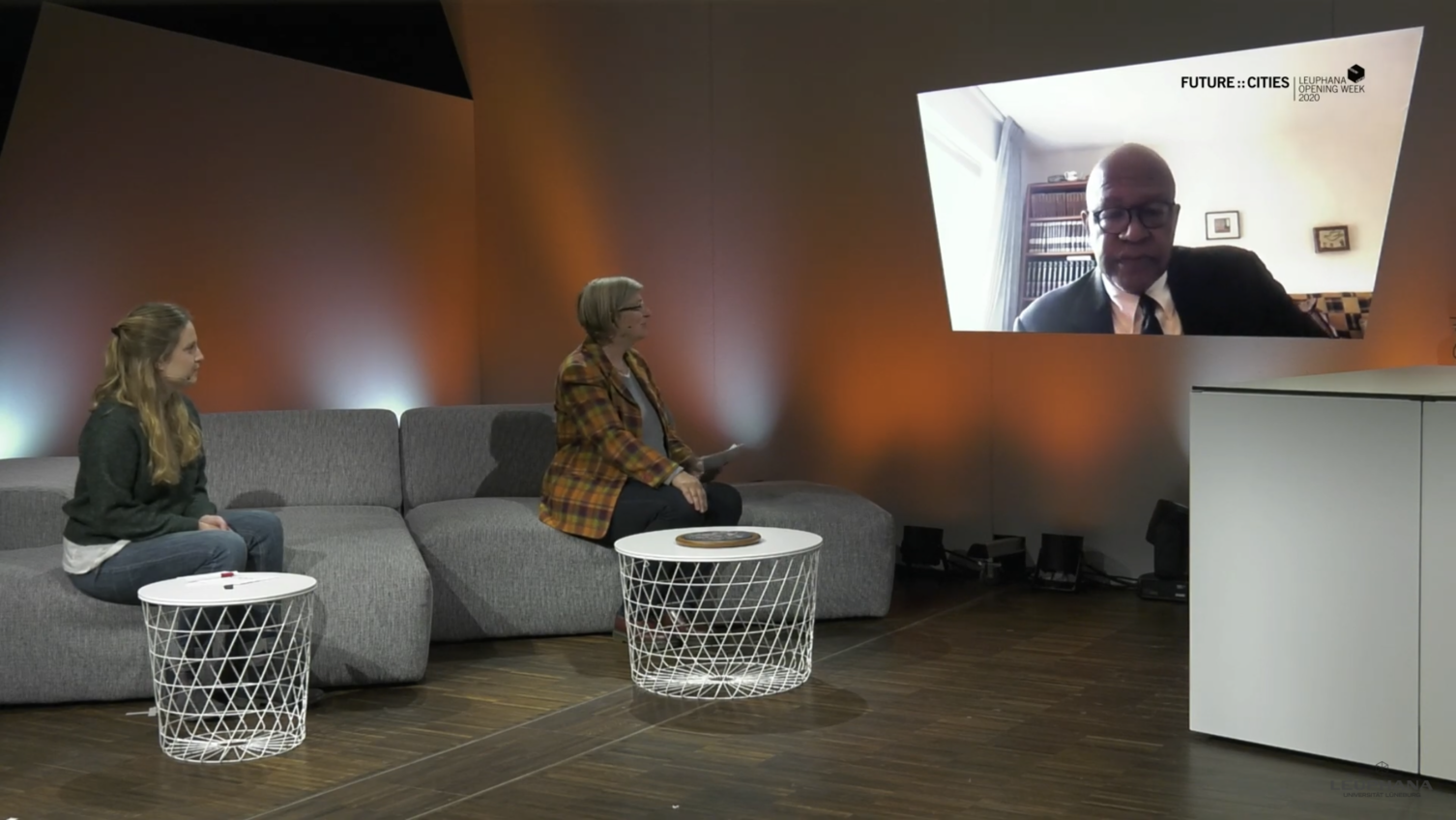Final at the Opening Week 2020: "Diverse islands of civility“
2020-10-12 Last Friday, this year's Opening Week "Future::Cities" ended with a finale that was streamed live to all 1400 first-semester students. Keynote speaker was Elijah Anderson. The Sterling Professor of Sociology and African American Studies at Yale University is one of the leading urban ethnographers in the United States.
"Since the end of the civil rights movement large numbers of black people have made there way into settings previously occupied only by whites. But the reception has been mixed. To be sure, many white people supported racial equality and progress, but many others consumed by deeply held prejudices powerfully resisted these changes which they feared abrogated they own rights and assumed priviliges", said Professor Dr. Elijah Anderson. He was the last keynote speaker of this year's Opening Week and spoke on "Black space, white space and the American city". Contrary to social realities, he said, iconic stereotypes still exist. "Systemic racism" continues to be a part of America. In contrast to this, "cosmopolitan canopies" are said to exist: "That are racially diverse islands of civility located in a virtual sea of racial segregation."
During the Opening Week, the first semester students had the opportunity to discuss with experts from science, politics and business and to ask questions. In small groups the students developed visions: What makes a city sustainable? How can cities deal with the challenges of climate change? What does urban health care look like - especially in times of the corona pandemic? What role do social movements play in the sustainability of cities? The students worked in interdisciplinary project teams and presented their vision in a video. Four of them were shown as examples at the final show. For example, the vision of a diverse and fair society presented with colorful gummi bears. No matter what taste, color or shape - in the end, they all belonged to one species. "Places of contact", where people from all walks of life come together, as a way to realize the vision of a city based on solidarity: "Let us become one", the students called out. The videos dealt with democracy, climate change, digitality and diversity in cities. Another group presented "Boards of possibilities". Citizens can gather ideas on urban development there. If the boards become virtual, more people will have the chance to get involved and network. "It shows us Erstis how important this is for Leuphana University and how important we are for them," said one student about the Opening Week.
The Leuphana semester begins at the end of the OpeningWeek. In the largely interdisciplinary modules of the Leuphana Semester, students work on the basics of academic studies: they learn how to go from observation to thesis, how to collect reliable data or how to classify current events in terms of the history of ideas. They learn how to write scientific papers and present results in an academic setting. At the same time, first-semester students receive an introduction to their main subject in subject-specific modules, both in terms of content and methodology. "Use the energy that was possible in this OpeningWeek and build on the contacts", Sven Prien-Ribcke, head of the OpeningWeek, gave the students to take along. Dr. Steffi Hobuß, Academic Director of Leuphana College, prepared for the start of the lectures: "On behalf of Leuphana College I wish everyone an inspiring Leuphana semester."

